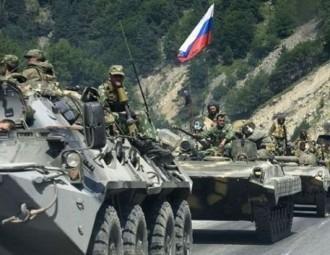Ulad Vialichka: Russian intervention into Ukraine caught Belarusan authorities in the crossfire

The events in Ukraine affect Belarus a lot: likewise Ukraine, Belarus is caught between Europe and Russia.
After the clear and definite reaction of the world community at the Russian intervention into Ukraine, Kremlin has to step back; for now the war is cancelled.
Ulad Vialichka, the member of the Coordination Committee of the National Platform of the EaP CSF, in the interview with the “EuroBelarus” Information Service discusses the fate of new Ukraine, which affects both Belarus and the Eastern Partnership.
- Putin has temporary abandoned his plans concerning the war with Ukraine. What made him to step back?
- After the statement Putin made at the press-conference on Tuesday, many people heaved a sigh of relief. Escalation of confrontation in Ukraine started to decrease and peaceful settlement got a chance.
Two factors are obvious for those who observe the development of situation in Ukraine: first, the clear and definite reaction of the world community at the Russia’s military aggression, which was so strong that Putin had to step back. And secondly, the reaction within Russia itself, the standpoint of the intellectuals, who voiced their disapproval with the military actions in Ukraine.
There is also one more accompanying factor: a restrained reaction of the countries-members of the Customs Union and CIS.
Ukrainian society took a correct stand: we don’t want war; we don’t consider Russia an enemy. But we will defend ourselves if we have to.
- Earlier the Belarusan National Platform of the Eastern Partnership Civil Society Forum issued an appeal to the leaders of Russia, Belarus, US and the EU, in which it called things by their proper names: Russian military intervention in Ukraine happened. Did any reaction to your appeal follow?
- We can’t name any specific reaction from the addressees of our appeal; however, our colleagues from other countries-members of the Eastern Partnership have also voiced their stance regarding the Ukrainian events. And such solidarity of stances is very important. Although I’m not sure that Obama and Putin read these statements in person, but I feel that the stances which were made public can influence the situation.
- The National Platform was one of the few Belarusan political players who clearly defined Russia’s actions as the military aggression, whereas official Minsk didn’t dare to say the truth. Do you expect any reaction from this side?
- As far as I know, BPF and Movement “For Freedom” also oppose Russian military intervention.
But honestly, we don’t have time to think about reaction when safety of the whole region is at stake. The events in Ukraine affect Belarus a lot: likewise Ukraine, Belarus is caught between Europe and Russia. Whatever claims Russian authorities have, they do not have enough reasons for the military intervention into Ukraine.
Our country found itself at the heart of Russia-Ukraine conflict and puts Belarusan authorities in an awkward position: on the one hand, we should be allies with Ukraine, but on the other, official Minsk is tied by allied commitments with Russia. Russian intervention into Ukraine caught Belarusan authorities in the crossfire.
- In critical situations non-formal contacts are always important. What informal contacts did National Platform made with the Ukrainian civil society?
- I would describe the relations with the Ukrainian colleagues as very close and friendly: Belarusan human rights fighters actively participate in human rights missions in Kiev and other cities, Belarusan civil society organizations support Maidan victims, collect medicines and money for the Ukrainian colleagues, and many Belarusans have visited Kiev to express that it is important for the fraternal nations to be together in the hardest moments of our history.
It seems to me that Ukraine notices and highly appreciates the reaction of common Belarusan people.
- The future of the Ukraine is uncertain. Can we make prognoses regarding the possible influence that Ukrainian revolution and Russian military intervention have on the fate of the Eastern Partnership?
- Today’s events is a key aspect that will influence the fate of the Eastern Partnership, which started to collapse after Armenia and Ukraine refused to sign the Association Agreement with the EU.
The important question is whether the Eastern Partnership will be preserved; but in any way, after the Ukrainian events Eastern Partnership is to be restarted.
When the results of the third Eastern Partnership Summit were drawn, we heard that the EU drew certain lessons from the previous stage, and one of the biggest mistakes was to deprive Eastern countries-neighbours of the possibility to become countries-members of the EU. As even the remote prospect of entering the European Union can change the climate in our countries as well as open new horizons.
However, the situation in Ukraine is too tough now to immediately change the Eastern Partnership program. Its fate depends on European strategists – how they will reconsider their own mistakes and what lessons will they draw.
-
03.01
-
07.10
-
22.09
-
17.08
-
12.08
-
30.09








































